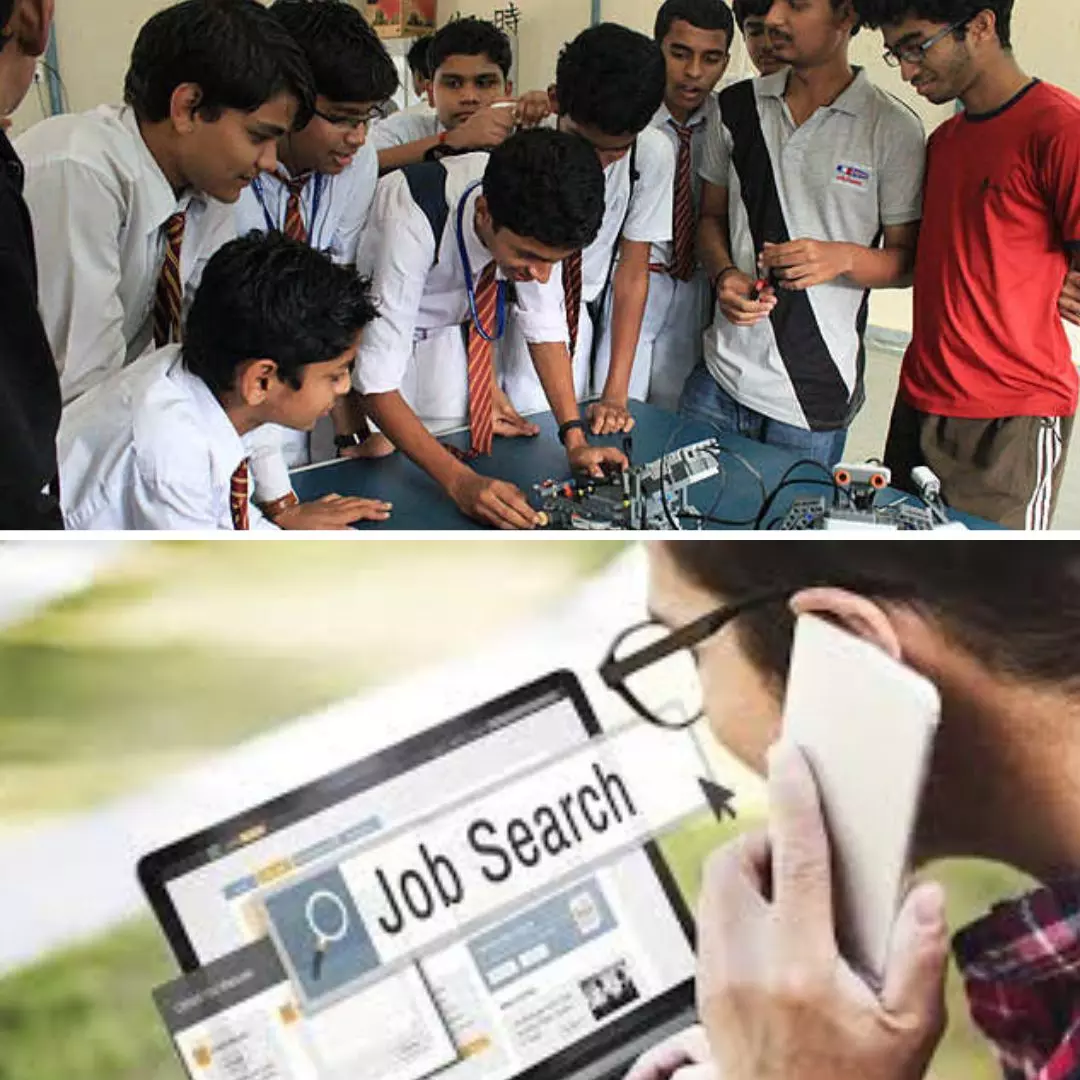
Image Credits: Education Times, Department of Training
NASSCOM Points At Failing Education System For Huge Employability Gap
Writer: Laxmi Mohan Kumar
She is an aspiring journalist in the process of learning and unlearning many things. Always up for discussions on everything from popular culture to politics.
India, 4 March 2023 7:30 AM GMT
Editor : Ankita Singh |
A literature lover who likes delving deeper into a wide range of societal issues and expresses her opinions about the same. Keeps looking for best-read recommendations while enjoying her coffee and tea.
Creatives : Laxmi Mohan Kumar
She is an aspiring journalist in the process of learning and unlearning many things. Always up for discussions on everything from popular culture to politics.
The education system in India has been criticised for following a pattern of "fetch marks, land a job." But for lakhs of engineering students in the country, securing a job is not as easy and experts point the flaws in the educational system for such a huge "employability gap."
In 2022, the think tank NITI Aayog stated that about 48 per cent of engineering students in the country are unemployed. The organisation stressed the need for advancement in higher education, and upskilling in a manner that would help students secure jobs. Time and again, multiple bodies have reflected upon the plight of engineering students in the country and how several engineers lack the skills to work even after graduation.
The National Association of Software and Service Companies (NASSCOM) conducted one such survey in 2019, which revealed that India produces around 15 lakh engineering graduates every year, of which barely 2.5 lakhs of them succeed in getting jobs in the core engineering industry. The advocacy group has once again stepped in to convey the message about the talented engineers in the country and the flaws that continue to exist within the Indian education system.
Widening Employability Gap
In NASSCOM's survey of 2019, they stated that from 2017 to 2018, there were not more than 50 percent of fresh engineers from AICTE-approved colleges who secured jobs. One of the major reasons for this was that the graduates were not skilled enough to work in the said field after graduating. Narayan Murthy, among the founders of innovations in the Indian IT sector, had once commented on the country's learning system. He said, "Engineering colleges in India are churning out only 25 percent quality engineers, and nearly 80-85 percent of youngsters are not suitably trained for any job."
As a result, numerous fresh graduates have no other option than to work in non-technical fields despite investing money and time in acquiring a degree in engineering. What they truly required was practical knowledge and industry exposure, which many institutions failed to offer. NASSCOM once again flagged this "employability gap" in engineering graduates and said that the education system is not focusing on building strong foundational and professional skills.
Debjani Ghosh, president of the technology industry lobby Nasscom, reflected on how the gap in necessary skillsets forces IT companies to spend more time training the freshers before they are deployed. This results in significant costs, which many companies cannot afford to take up. Curbing such a national loss of workforce is among the need of the hour for the country, and it's time educationists, and policymakers adopt some positive actions in this direction.
Shortcomings Of Educational System
The core problem lies within the very education modules which passes off students as decent engineers with a paper in the name of a degree. Ghosh commented that today's engineers are no longer working in back-offices and have to sit with the clients as the industry shifts from service provider to digital transformation partner. She added "our current educational system does not focus on building good communication skills, building design thinking (capabilities), out of box thinking, problem-solving."
A need for upskilling has been called for among every person within technical and non-technical backgrounds. The first and foremost space where they can receive such training is within the educational system that is expected to train foundational and professional skill sets. A report by New Indian Express cited Ghosh saying that she "hoped" the newly-launched New Education Policy would correct such shortcomings and push students toward thinking out of the box.
 All section
All section














